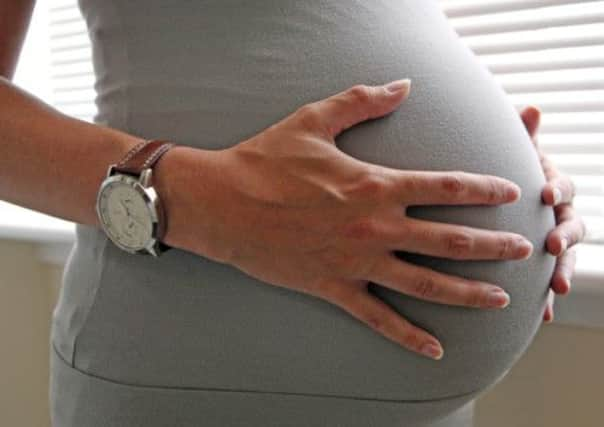Huge numbers of new mothers ‘are denied choice and support’


A poll of 5,500 mothers who gave birth in the past five years found many were not given choice over where they gave birth.
Three in five said they wanted more support with postnatal care and one in five said they did not see a midwife as often as they needed in the days and weeks after birth.
Advertisement
Hide AdAdvertisement
Hide AdExperts branded as “shocking” the numbers of women disappointed over their care in the survey by the National Federation of Women’s Institutes (NFWI) and parents’ charity NCT.
They conclude women’s choice about where to give birth “remains an aspiration, not a reality”, after one in 10 of those polled said they did not give birth in their intended location partly because of a lack of staff and beds.
“Too many women are still denied their choices on a daily basis,” researchers said.
The report said that during 2011 and 2012, 24 NHS trusts were forced to close their doors to women in labour on 455 occasions – two-fifths of the closures were due to staff shortages and another two-fifths were because the wards were full.
Advertisement
Hide AdAdvertisement
Hide AdThe authors said many women experienced fragmented care, with almost nine in 10 reporting they had not met any of the midwives who delivered their babies before labour.
Belinda Phipps, chief executive of NCT, said: “We are extremely concerned about the shockingly high number of women who have been let down by their maternity care.
“Parents who are poorly supported during pregnancy and labour are more likely to suffer mental and emotional consequences and feel less equipped to face the ups and downs of the months ahead.
“With rising UK birth rates, governments cannot afford to sit on their hands.
Advertisement
Hide AdAdvertisement
Hide Ad“Consistent, high-quality care is a must for every parent during their first 1,000 days.”
Ruth Bond, chairman of the NFWI, added: “This report provides insight into the patchy and staggeringly inconsistent levels of care that are a day to day reality for women in the early days and weeks following the birth of a child.
“Almost 2,000 women will give birth across the UK today. Sadly many will be let down at a time when they most need help.
“Evidence shows that providing the right care and support in the transition to parenthood can have a long-term impact on the health and well-being of women and their families, yet women are being routinely failed. Often this seems to be because of staff shortages.”
Advertisement
Hide AdAdvertisement
Hide AdCathy Warwick, chief executive of the Royal College of Midwives, added: “The report paints a disappointing and worrying picture of our maternity services.
“We are 5,000 midwives short in England. Without enough midwives to cope with the increasing demands on maternity services I fear that we will not see the situation depicted in this report improving.
“Women have been promised choice around their maternity care and this report clearly shows that that choice is being denied or is simply not available to far too many.
“This report should be compulsory reading for those who will be organising maternity services in the new NHS structure and I urge them to take note and act upon its findings.”
Advertisement
Hide AdAdvertisement
Hide AdA new report yesterday by the Royal College of Obstetricians and Gynaecologists found the number of women who had to undergo induced labour or instrumental deliveries was twice as high in some hospitals compared with others.
It said variations may be a “source of concern” suggesting “not all women are getting the best possible care”.